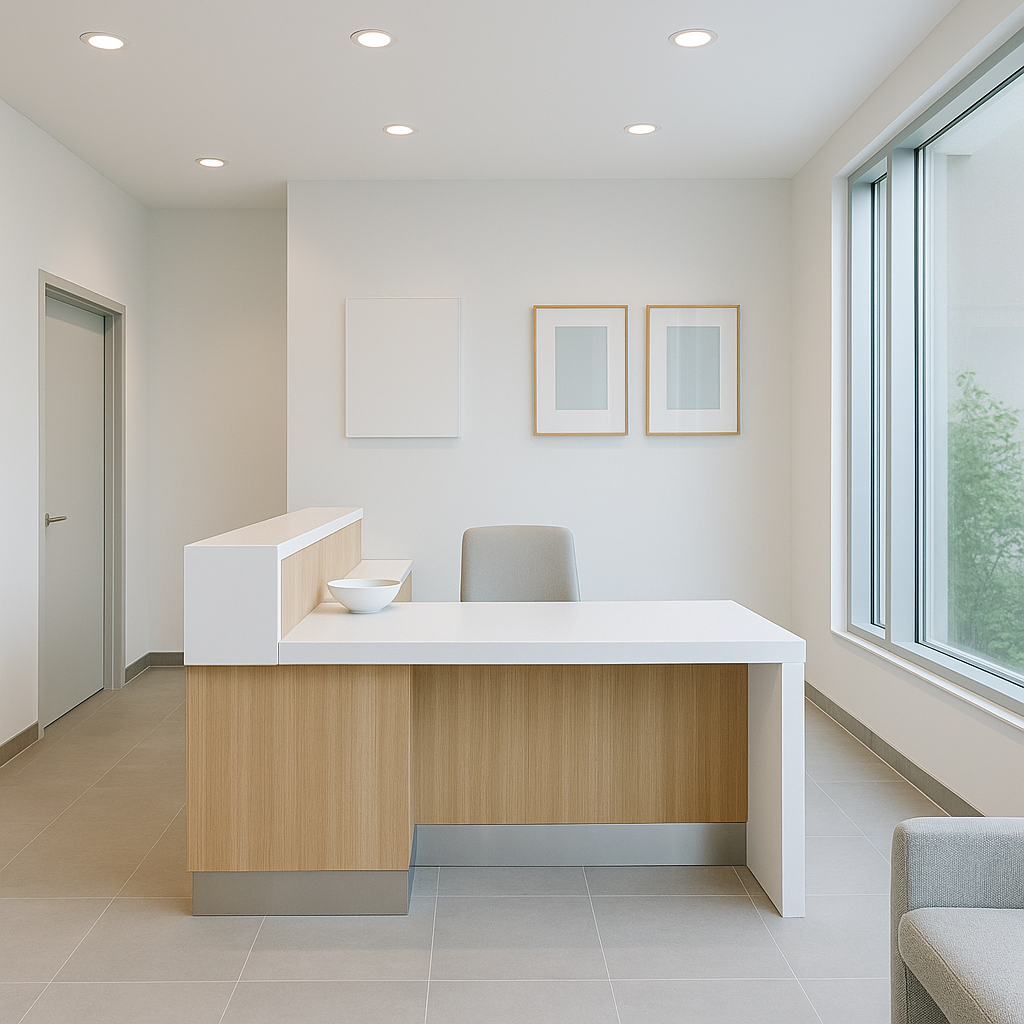How to Plan a Medical Office Renovation in Ontario – Step-by-Step Guide for Healthcare Professionals
Respendisse quis lorem urna. Donec sed dui mollis, elementum enim quis.

Renovating a medical office is not like renovating a kitchen or retail store. It requires industry-specific expertise, familiarity with healthcare regulations, and a deep understanding of how medical environments operate. Whether you’re updating a family clinic, building a new audiology practice, or redesigning a pharmacy layout, choosing the right renovation contractor is a decision that can impact your workflow, compliance status, patient satisfaction—and your bottom line.
In this guide, we’ll walk you through the most important factors to consider when hiring a medical office renovation contractor in Ontario.
Not all contractors are equipped to handle the complexity of healthcare renovations. Look for a company with a proven track record in medical office construction. This includes experience with:
Medical environments have strict design, plumbing, electrical, and infection control requirements that go far beyond standard construction. A contractor without this experience may overlook critical compliance elements.
Tip: Ask for portfolio examples and case studies specific to healthcare.
Healthcare renovations in Ontario must comply with multiple levels of regulation, including:
The right contractor should proactively manage these requirements and be familiar with local inspectors, permit timelines, and clinic-specific compliance needs.
Bonus: If you’re renovating a space for a pharmacy, imaging centre, or surgical suite, ask whether they’ve dealt with requirements from the Ontario College of Pharmacists or other licensing bodies.
Many healthcare clients don’t come to the table with architectural drawings or design plans in hand. A great renovation contractor either offers in-house design services or works closely with medical office designers and engineers.
You want someone who can translate your vision into a code-compliant, patient-friendly, and budget-conscious reality—not just build what’s on paper.
Questions to ask:

Renovation disruptions in a healthcare setting aren’t just inconvenient—they can lead to lost income, displaced patients, or even safety risks. That’s why it’s critical to choose a contractor with solid project management systems and clear communication protocols.
Look for a team that:
A medical renovation may involve after-hours work, dust control, or tight deadlines—choose a contractor who’s organized and adaptable.
An experienced healthcare contractor should understand more than just studs and drywall. They should understand patient behavior, staff workflow, and design trends that improve the overall experience.
This means:
Whether you’re building for wellness or diagnostics, good renovation design enhances trust, efficiency, and even patient outcomes.

The best contractors will provide clear, itemized quotes with no hidden costs. They’ll explain what’s included, what’s not, and what could cause a price change (like uncovering mold or asbestos during demo).
Ensure they include:
Also, make sure payment milestones align with actual work completed—not just calendar dates.
Healthcare construction must last. Your contractor should stand by their work with a written warranty and be available for any post-completion adjustments or touch-ups.
Ask:
Choosing a medical office renovation contractor is a strategic business decision. The right partner will understand your unique healthcare environment, manage compliance with confidence, and deliver a space that’s as functional as it is welcoming.
At Reno Ethics Contracting, we specialize in medical office renovations across Ontario—from new builds to phased upgrades. Our team understands what it takes to deliver healthcare renovations that are safe, efficient, and built to last.
Respendisse quis lorem urna. Donec sed dui mollis, elementum enim quis.
Quis lorem suspendisse urna. Donec sed dui mollis, elementum enim quis.
Elementum sed enim quis suspendisse quis lorem urna. Donec sed dui mollis,.